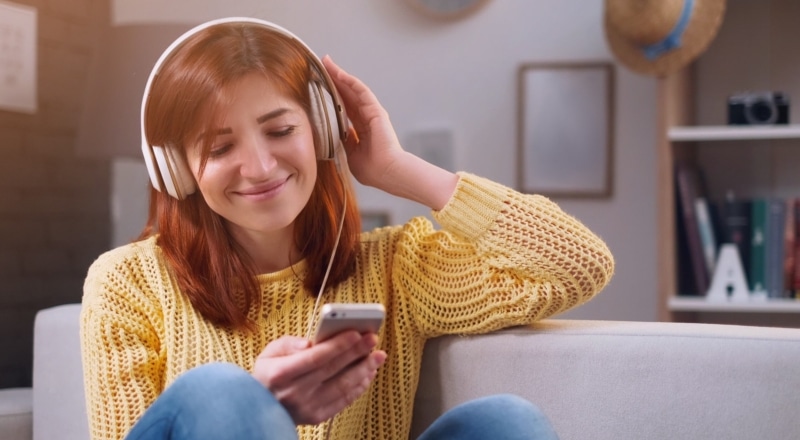Will COVID-19 help make a more inclusive society?
Orla talks about how some of our innovative ways to keep in contact while social distancing can be helpful in the future

When a big event happens, it can be a time for reflection. The Coronavirus pandemic is no different. With the social distancing measures the government has put in place, a lot of people are now getting a sense of the restrictions that many disabled people face every day, and we do it without extra government support. At a time like this, it is amazing what can be accomplished.
For some people, Covid-19 has brought extra hardship. I’m only aware of this because I am part of a minority affected by something that makes a lot of “normal life” quite inaccessible. I want to share why the situation is harder for some people in the hope it might increase others’ capacity for empathy, education and create change. I would also like others to share how the social distancing parallels with their everyday experience, which others, like myself may not be aware of.
The impact of Covid-19 in Ireland
Everyday routines have been upheaved by the closures of schools, colleges and some work places. Bars, clubs and other large social events have been effectively canceled. In short people have been mainly confined to their homes. It’s interesting to see peoples reactions to this. I wish this didn’t have to happen, and the consequences for many marginalised people are dire. However, the irony is not lost on me, that the same people who suggested I try alternative medicines, do yoga, go on holiday, that my physical illness was all in my head and try every diet under the sun, are now experiencing some of the same confines I’ve had to experience for the last four years. I don’t blame them or thrive in their pain but I can acknowledge the irony and maybe even crack a smile of vindication, because let’s face it I’m only human.
Living with Chronic Fatigue Syndrome
I suffer from a number of chronic illnesses. One is called Myalgic Encephalomyelitis (ME) or Chronic Fatigue Syndrome (CFS). To explain my illness briefly I usually take it word by word. ‘Chronic’ – chronic illnesses generally do not have a cure. There may be treatment to manage the illness (in my case I haven’t found any that are that effective), but there is nothing that will cure it. It may end or it may not, there’s no way of knowing and there’s little understanding as to why. For this reason chronic illnesses can be hard to deal with for both patients and doctors.
‘Fatigue’ – fatigue is not the same as tiredness. It is a complete lack of energy as if someone unplugged you from your energy source. You feel fatigue in your whole body. It’s like the force of gravity is extra strong, pulling your body down with all it’s might. For this reason it can be hard to raise your arms, stand up, walk, lift your head off a pillow. Simple tasks like brushing your teeth or hair, showering, washing or drying your hair, getting dressed, carrying things etc can become close to impossible. My fatigue is not cured by rest but it gets worse from exertion. It will pass when it passes.
Finally, ‘Syndrome’ – a syndrome is a collection of symptoms. It is not a disease. Therefore, there is a wide range of experiences for those with CFS/ME. There are lots of other symptoms such as chronic pain, dizziness, headaches, hot and cold flashes etc. It is not just fatigue.
Due to my illnesses, which also include anxiety and depression, I have had to drop out of school twice. I do not have a junior or leaving certificate at the age of 18. I was forced to drop out of school twice because going to school was extremely hard. School was inaccessible, as were exams. Socialising was also extremely hard and I missed out on the social element of school too. The gym, sport and other hobbies also became impossible to get to. And I’m one of the lucky ones because I can ‘function’ some of the time. I’ve been able to get into a QQI level 5 course (PLC) but I still struggle to attend classes and balance social needs and expectations with my energy levels. I find it hard to keep up social connections and keep up to date with deadlines.
Social distancing in Ireland
Yet this has now become an issue for all of society and people have started to become more inventive. There is a leniency and understanding present now that I have not often experienced. If it is possible now why can’t it be possible for disabled people beyond this crisis? These are our lives, if it’s possible now surely it can be possible to implement measures for those who need them to allow us to live our lives. This is a problem for policy makers that I would encourage you to fight for but there are also things we as individuals are supporting now that we do not normally focus on.
We are finding a way to make certain things like appointments, lectures, notes, house exams, homework, assignments, meetings, social events, accessible in new and innovative ways. Perhaps you can continue this in your classroom, lecture hall, practice etc after the pandemic.
As young people some areas to consider might be how you build and maintain social connections, organise group work in school/college and hangout in your social groups. Could you call a friend instead of having to meet up or work online instead of only in person meetings? Now is a great time to consider the things we are doing now in our personal and professional lives to accommodate people and ask ourselves could we continue this in the future to be more inclusive and supportive of others?






